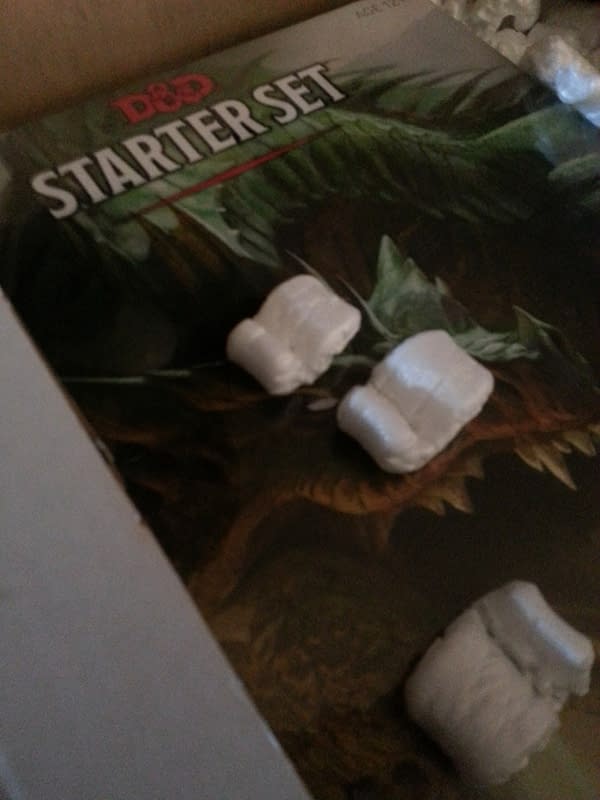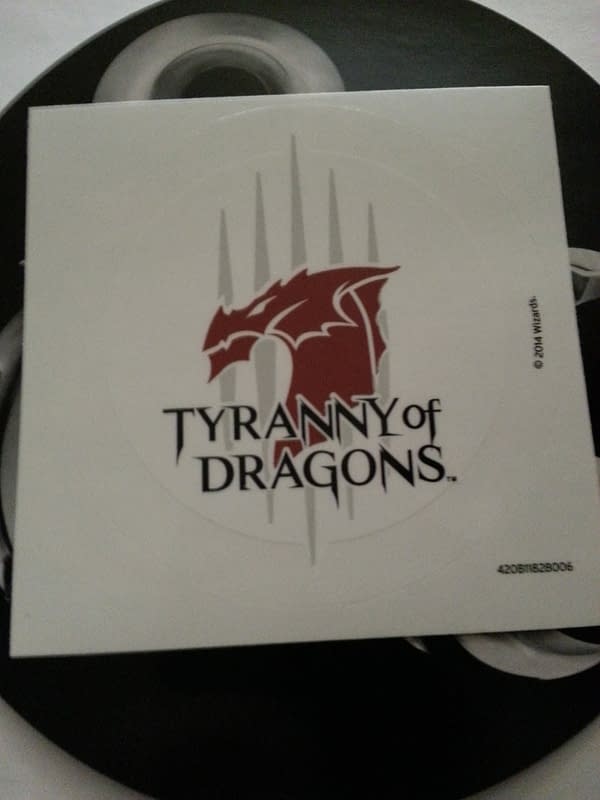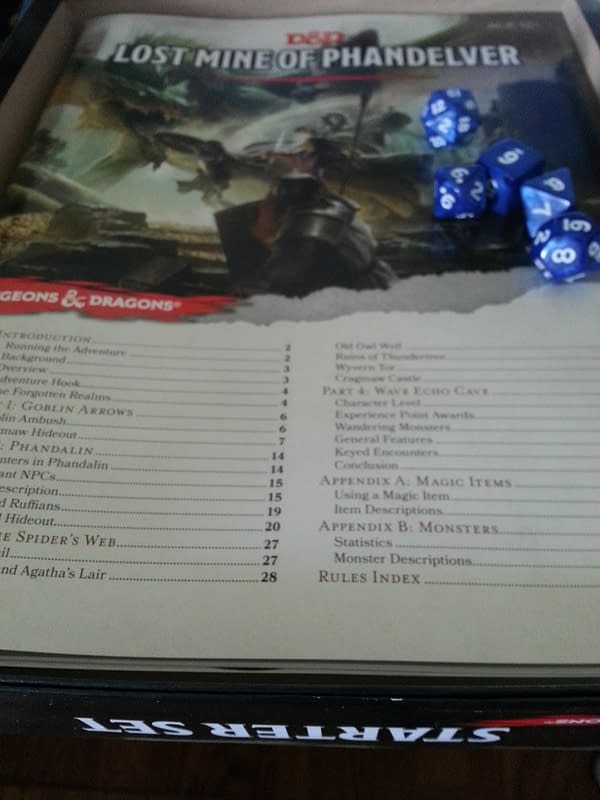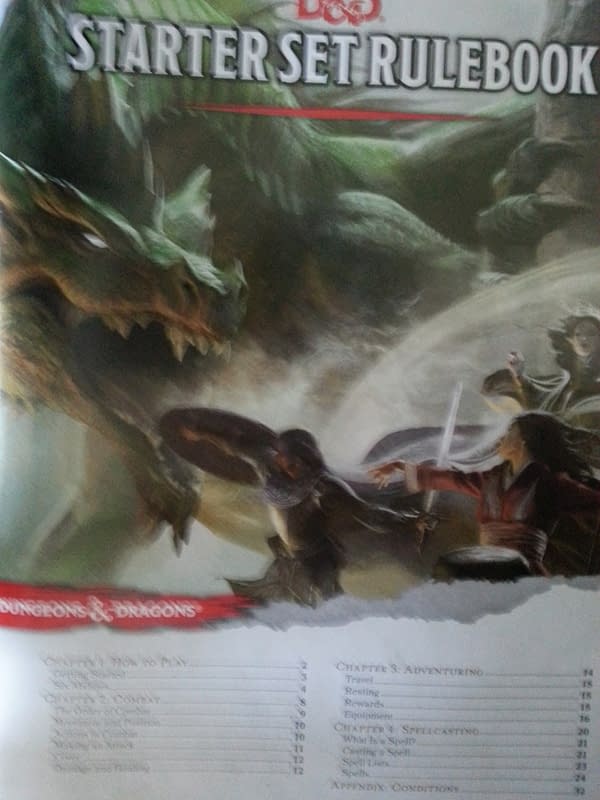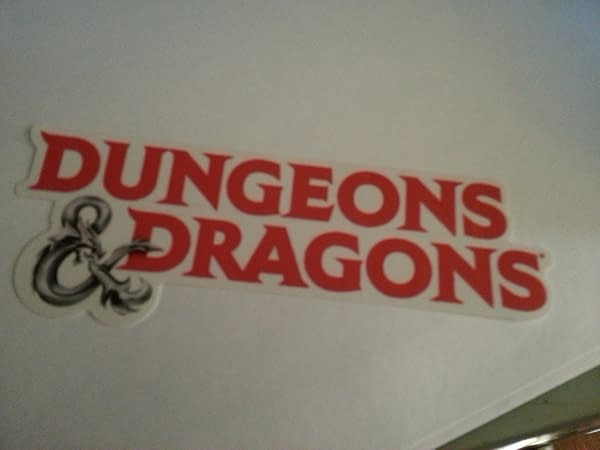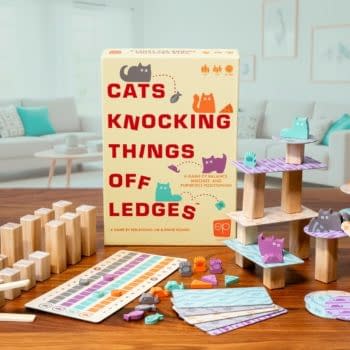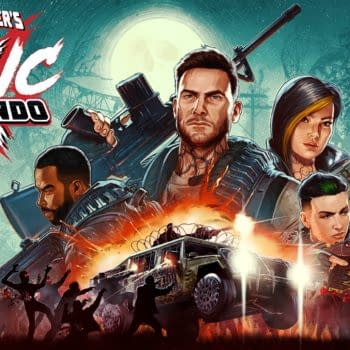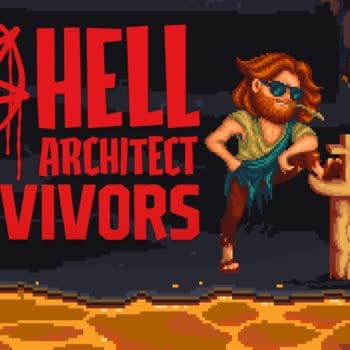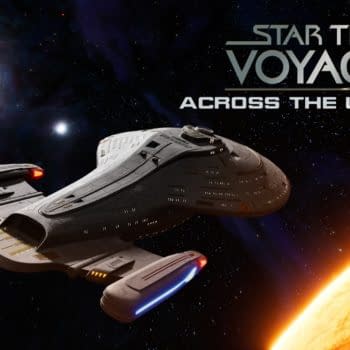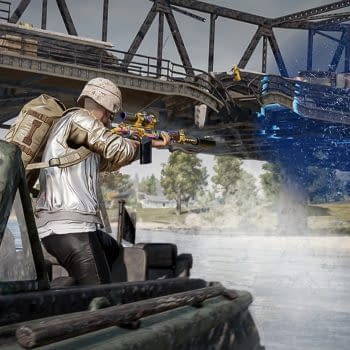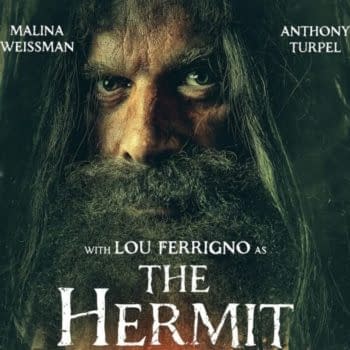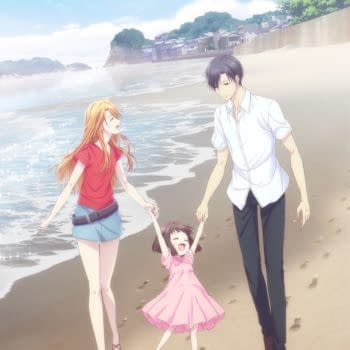Posted in: Games, Movies, Recent Updates | Tagged: Basic Rules, d&d, dungeons & dragons, entertainment, Review, rpg, RPG Gaming, Starter Set, wizards of the coast
Nice Things We Can Have – Looking At The Dungeons & Dragons Starter Set
By Christopher Helton
Just before the fireworks of the American Independence Day you may have heard a shot fired off. That was the opening volley in the release of the new edition of Dungeons & Dragons from Wizards of the Coast. With the release of the Dungeons & Dragons Starter Set in stores, and the Dungeons & Dragons Basic Rules PDF on the Wizards of the Coast website, we have the beginnings of the fifth edition of the game that started tabletop RPGs and influenced a swath of video and computer games as well.

Something that you don't see very often in the tabletop RPG industry is an early release. Originally scheduled for July 15th, the Dungeons & Dragons Starter Set instead came out on July 3rd (as did the PDF of the basic rules). The roll out of the core books for the game (the Player's Handbook, the Monster Manual and the Dungeon Master's Guide) will happen over the next few months, so it probably won't be until the end of the year that we will have the entire game and a chance to digest it. Games have already started, however, as the Starter Set contains an adventure that the Wizards of the Coast D&D brand developers have said will support about 16-20 hours of play. Since my current group meets for 2 hours a week (oh, the fun of an adult schedule), if I can convince them to give the adventure a try that means it will take us 8-10 weeks to run through the Mines of Phandelver adventure.
I really didn't follow the playtest, when the game was still known as D&DNext. I didn't want to get attached to a set of rules that might not end up being the final product. After spending a couple of days reading through the Dungeons & Dragons Basic Rules PDF, I am glad that I didn't. Reading through the PDF something happened with me that hasn't happened in close to 10 years: I wanted to run a Dungeons & Dragons game. I had "quit" D&D for a while, moving on to other games in the late 80s, and not coming back to it until the third edition came out. Near the end of the cycle of the third edition I moved on again to other games and skipped over the fourth edition. I picked up things for the fourth edition, but it just never sparked with me enough to want to play it. This is really my first litmus test for a new RPG.
The second litmus test is: Can I figure this game out well enough to run/play it?
The answer to that is yes. This is one of the most clearly written editions of the game in a while. What we have here is a group of professional game designers at the peak of their game (so to speak), carrying the first roleplaying game into the next few years. Between the Starter Set and the Basic Rules, I found that things were well written and well explained. Whether you are an experienced gamer, or someone new to roleplaying, you should be able to pick both of these up and know what you are doing. I don't think that the Starter Set is really geared towards more experienced gamers, so there might be some frustration that things are too simplified for them, but for the target audience of beginners these are both well-done products.
Combat looks like it would be easy enough to run. I am hoping to run with the weekly group that I play with, kick the tires and see what it is actually like in play. When that gets to happen, I'll talk some more about the game. There are still things in there that some people don't like, like Attacks of Opportunity under a different name, but that is going to be the case with any new edition of a game.
I like Ability Checks, and the simplified handling of skills. At first, I wasn't sure about getting rid of untrained skills, but as I think more about the idea it does make sense that heroic characters should be able to do more than "normal" people. You never saw Conan think, "Damn, I should have gotten training in noticing what people are doing" and it makes sense for characters to be the same way. The approach of D&D is that the characters a bigger than life, competent individuals and I am glad to see the rules treat them that way. One of the things that frustrates me the most with RPGs is the idea that everyone should have a significant chance of failure in trying to do things. I don't consider that to be heroic.
Along with this is the Advantage/Disadvantage mechanic that has been introduced with this edition. The idea behind this is that if you have an Advantage with a certain type of roll that you roll two dice and take the highest of the two rolls. If you have a Disadvantage in a certain situation, you take the lowest of the two rolls. I really like this idea. It is another thing that reinforces the heroic nature of characters mechanically.
This version of Dungeons & Dragons has a lot of cool new stuff to promote roleplaying as well. Personality traits of Bonds, Ideals and Flaws give you hooks for playing your character, and work into a cool mechanic called Inspiration that can be used to help out your character during play. Ideals are what is important to your character. Bonds are what connect them to their world and the other people in it. Flaws are some weakness that your character suffers from. These things give your character the Inspiration to do better in a situation during a game session. These are really nothing new to roleplaying games in general, but they make for a good addition to D&D and, like other new mechanical elements help to enforce a heroic feel to characters.
There are cons. The Starter Set is just that, a start to the game. While you get a nice set of new dice, some of the rules and an interesting adventure, there are no character creation rules in the game. In fact the rulebook in the Starter Set box is fairly minimal (about a quarter of the rules contained in the Basic Rules PDF) and give you just enough to run the adventure included. Pre-generated characters are included (2 fighters, 2 clerics, 1 wizard and 1 rogue), but there is no way to flesh them out beyond the options listed on character sheets. There is enough information on advancement to take these pregens up to fifth level of play. In their unboxing video, the Wizards of the Coast team said that there is about 16 or so hours of play out of Lost Mine of Phandevlver, the included adventure.
The only monsters in the Starter Set are those that are in the adventure. Including explanation of mechanics, there's about ten pages worth of monster. Obviously not enough for an ongoing game, and hopefully the August revision of the Basic Rules will include more monsters. Otherwise it will be a long while until the Monster Manual comes out for the game. Magic items get even less love, with two pages of items for the adventure.
I also think that it would take an experienced Dungeon Master (DM) to run this adventure. There is handholding for the inexperienced DM, but I'm not sure that it is enough for an adventure of this size. The box might have been better with a smaller 2-3 hour introductory adventure that lead into the big story, something that would go carefully through the steps of what a beginning DM needs to know and do in order to run an adventure. I will say that judging this is hard for me, since I have been gaming for over 30 years now, but from a read through of the adventure, I am not sure that it is ready for the brand new DM/player combination.
This has been a fault with RPGs for a while. Too many games build off the assumption that someone at the table knows what they are doing and can guide play. This is one reason why the players of tabletop RPGs are a graying demographic.
Overall, do I think that the Starter Set is worth the $20 price of entry? I would say yes, for an experienced gaming group looking to determine if the fifth edition rules are going to be for them. I would probably say a reserved maybe for new or less experienced group that don't really know what they are doing with an RPG. For the inexperienced, it might be better to wait for the D&D Encounters to start up and play a bit at the table of someone with some experience with D&D.
Yes, the Basic Rules PDF does do a better job of introducing the mechanics of the game, but it still may not be completely new user friendly. While they plan to update the Basic Rules to make it more standalone (coming later in August), at the moment it really exists in symbiosis with the Starter Set for a lot of the things that you would need to run a game, like monsters and a sampling of magic items. I can't obviously say yet what the PDF will end up looking like, so I don't know how it will handle things.
However all of this does the job and makes me want the full game when it comes out. I can easily see myself running a fifth edition Dungeons & Dragons game, and all that the Starter Set and Basic Rules really have done is make me want to get the Player's Handbook when it comes out. It is going to be a long wait until August.
Christopher Helton is a blogger, podcaster and tabletop RPG publisher who talks about games and other forms of geekery at the long-running Dorkland! blog. He is also the co-publisher at the ENnie Award winning Battlefield Press, Inc. You can find him on Twitter at @dorkland and on G+ at https://plus.google.com/+ChristopherHelton/ where he will talk your ear off about gaming and comics.
Christopher has a crowdfunding page to help raise money to defray the costs for going to the Gen Con gaming convention and cover it for his Dorkland! blog and Bleeding Cool. Please click here to go to the page and help out.



